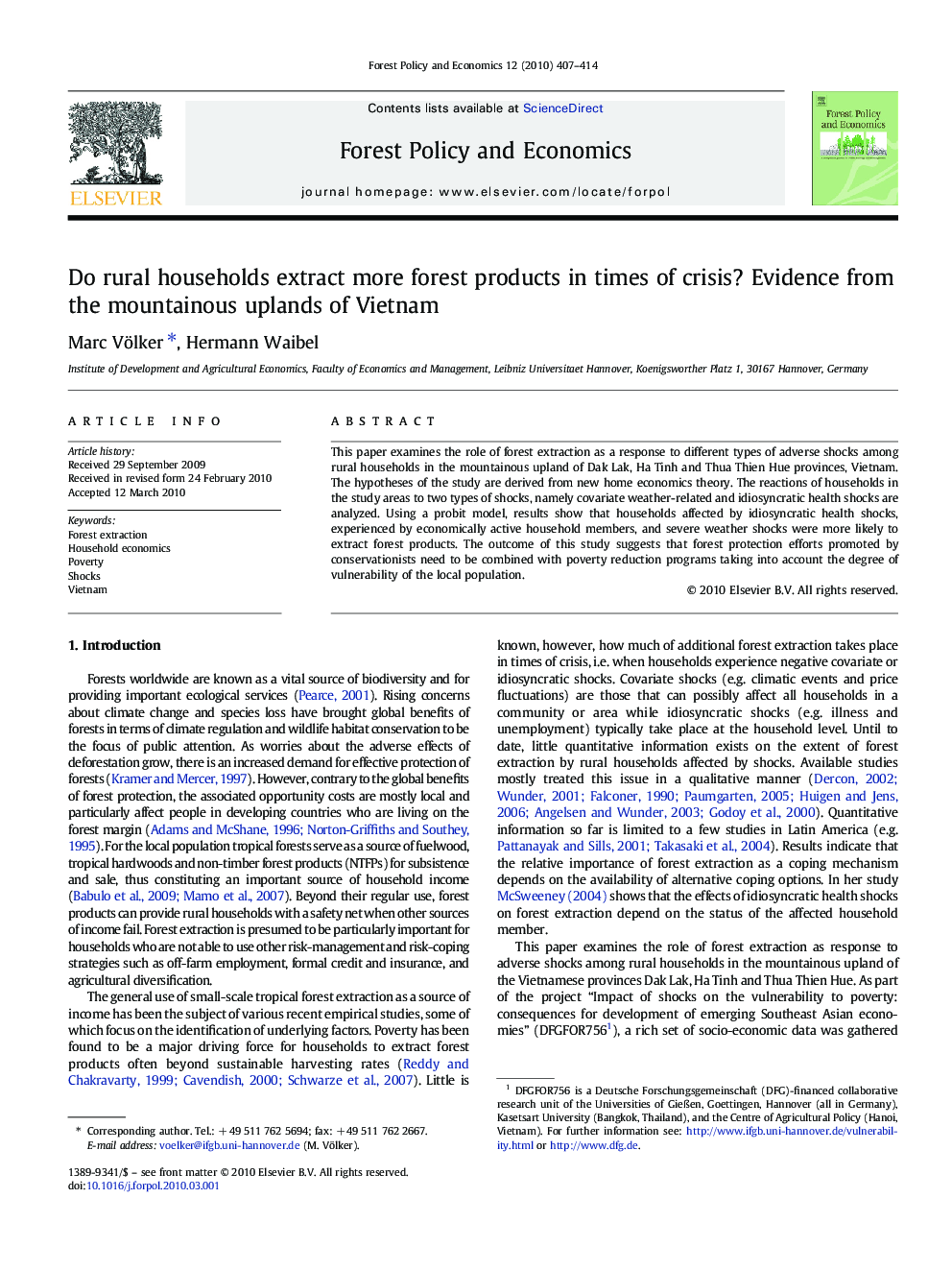| Article ID | Journal | Published Year | Pages | File Type |
|---|---|---|---|---|
| 91480 | Forest Policy and Economics | 2010 | 8 Pages |
This paper examines the role of forest extraction as a response to different types of adverse shocks among rural households in the mountainous upland of Dak Lak, Ha Tinh and Thua Thien Hue provinces, Vietnam. The hypotheses of the study are derived from new home economics theory. The reactions of households in the study areas to two types of shocks, namely covariate weather-related and idiosyncratic health shocks are analyzed. Using a probit model, results show that households affected by idiosyncratic health shocks, experienced by economically active household members, and severe weather shocks were more likely to extract forest products. The outcome of this study suggests that forest protection efforts promoted by conservationists need to be combined with poverty reduction programs taking into account the degree of vulnerability of the local population.
